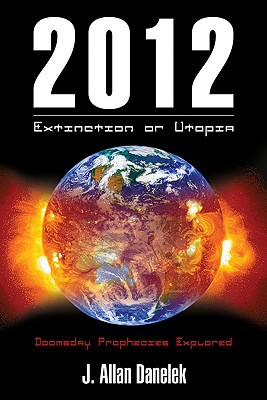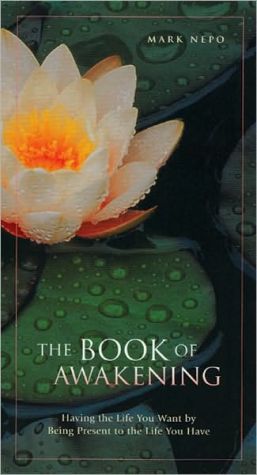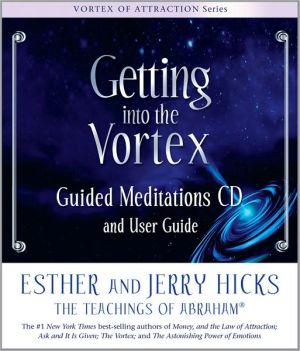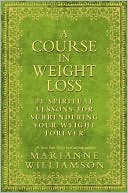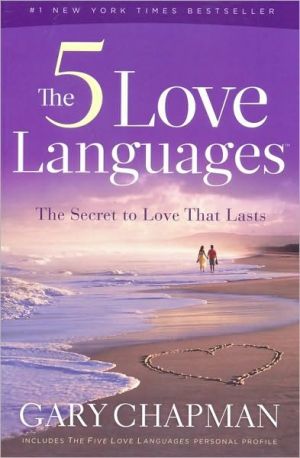2012: Extinction or Utopia: Doomsday Prophecies Explored
Is 2012 the end of the world as we know it? From 2012 to global warming to worldwide pandemics, doomsday scenarios play an increasingly large role in our lives. Do any of these apocalyptic scenarios pose a real, urgent risk? Why does our modern culture continue to embrace these bleak beliefs, and how are they affecting our world?\ Separating hype from truth, J. Allan Danelek scrutinizes the ancient Mayan calendar's end date of 2012 and takes a hard look at whether it spells the end of the...
Search in google:
Is 2012 the end of the world as we know it? From 2012 to global warming to worldwide pandemics, doomsday scenarios play an increasingly large role in our lives. Do any of these apocalyptic scenarios pose a real, urgent risk? Why does our modern culture continue to embrace these bleak beliefs, and how are they affecting our world?Separating hype from truth, J. Allan Danelek scrutinizes the ancient Mayan calendar's end date of 2012 and takes a hard look at whether it spells the end of the world--or a new beginning. Danelek also delves into other doomsday beliefs past and present, from biblical end-times prophecies to biological warfare, and discusses the predictions of world-famous prophets such as Nostradamus and Edgar Cayce.With piercing logic, Danelek objectively explores the apocalyptic threats that have captured our imagination . . . and reveals startling insights about what kind of future--dire or dazzling--awaits humanity. Library Journal Perhaps the fretting over the coming cosmic dustup has faded, but the world will end in December 2012—or so say certain interpretations of ancient Mesoamerican calendars and dubious readings of Christian and Chinese traditions. Three recent publications take up the 2012 question without fear. Theologian Hitchcock (The Late Great United States: What Bible Prophecy Reveals About America's Last Days) dismisses the prophecies of doom as unreliable and un-Christian, although he embraces the notion of Apocalypse on God's timetable, not available to the mortal eye. Think-tank founder and prolific author Laszlo (Quantum Shift in the Global Brain: How the New Scientific Reality Can Change Us and Our World) simply uses the notion of the 2012 breakdown/breakthrough as a vehicle for the transformation of the world. Danelek (UFOs: The Great Debate; Mystery of Reincarnation) adopts his usual moderately skeptical stance and his characteristic intelligence to show that prophecies are worse than unreliable and that there is as much reason to greet the future with guarded optimism as millennial panic. VERDICT None of these books will feed the frenzy of the fearful. Hitchcock's title will attract a conservative Christian audience, while Laszlo and Danelek will appeal, respectively, to earth-conscious readers and readers in (and debunkers of) the paranormal.
Introduction 1Chapter 1 Prophecy in Retrospect 5Chapter 2 Why We Believe 19Chapter 3 Failed Doomsday Prophecies of the Past 29Chapter 4 Nostradamus: The Seer of St. Rémy 45Chapter 5 Edgar Cayce: The Sleeping Prophet 57Chapter 6 2012 Hysteria 69Chapter 7 Prophecy in the Bible 83Chapter 8 How End-Times Prophecy Works 91Chapter 9 More Dispensationalist Meanderings from the Bible 101Chapter 10 The Antichrist 121Chapter 11 Real Doomsday Scenarios 133Chapter 12 Ecological Doomsday 157Chapter 13 The Extraterrestrial Hypothesis 167Chapter 14 The Problem with Foretelling the Future 175Chapter 15 Extinction or Utopia: What the Future May Really Hold 183Conclusion 195
\ Library JournalPerhaps the fretting over the coming cosmic dustup has faded, but the world will end in December 2012—or so say certain interpretations of ancient Mesoamerican calendars and dubious readings of Christian and Chinese traditions. Three recent publications take up the 2012 question without fear. Theologian Hitchcock (The Late Great United States: What Bible Prophecy Reveals About America's Last Days) dismisses the prophecies of doom as unreliable and un-Christian, although he embraces the notion of Apocalypse on God's timetable, not available to the mortal eye. Think-tank founder and prolific author Laszlo (Quantum Shift in the Global Brain: How the New Scientific Reality Can Change Us and Our World) simply uses the notion of the 2012 breakdown/breakthrough as a vehicle for the transformation of the world. Danelek (UFOs: The Great Debate; Mystery of Reincarnation) adopts his usual moderately skeptical stance and his characteristic intelligence to show that prophecies are worse than unreliable and that there is as much reason to greet the future with guarded optimism as millennial panic. VERDICT None of these books will feed the frenzy of the fearful. Hitchcock's title will attract a conservative Christian audience, while Laszlo and Danelek will appeal, respectively, to earth-conscious readers and readers in (and debunkers of) the paranormal.\ \
